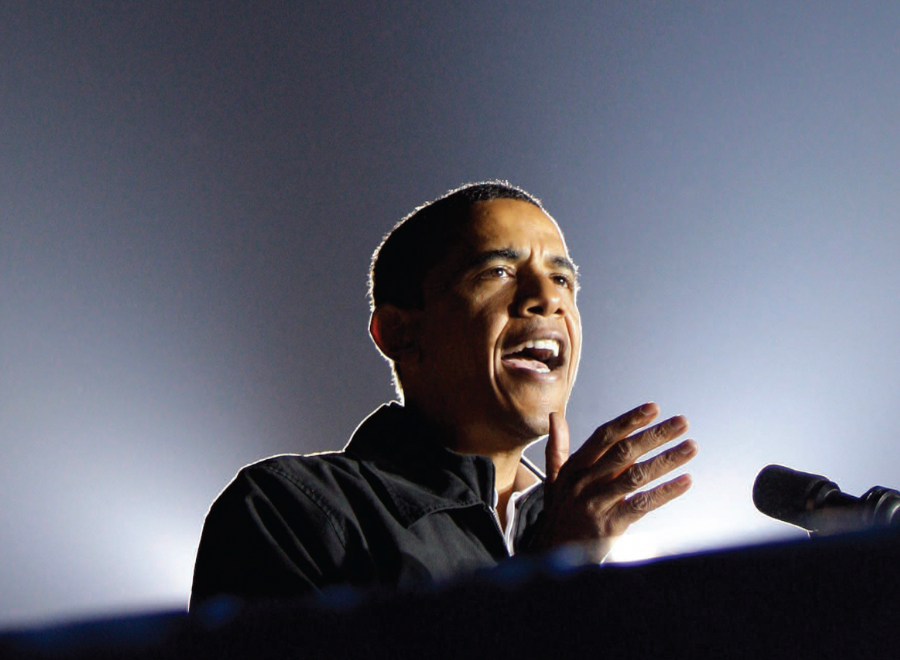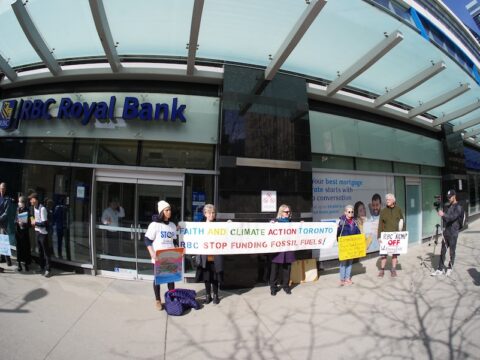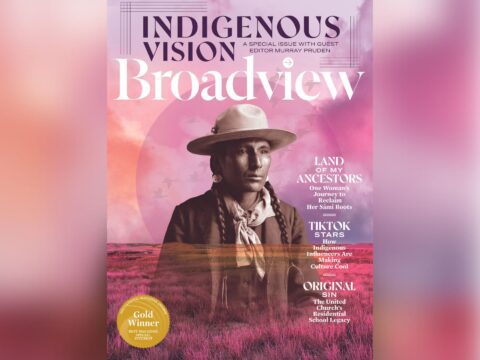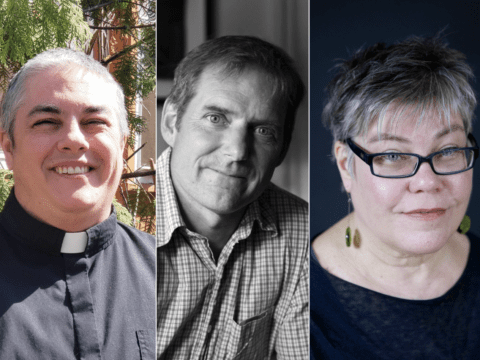When Americans elected Barack Obama their 44th president, they were hoping he would bring to the White House something amorphously called “change.” While the jury on this might need to stay out a bit longer, what America got for sure was oratory. From the very beginning, Obama’s candidacy was built on his extraordinary ability to stir crowds with the spoken word. We can safely assume that oratory will be a defining feature of his presidency, starting with his inaugural address this month.
Obama delivers oratory, or rhetoric, as gets heard only rarely in our culture. Lincoln, Churchill, Kennedy and King hold iconic positions, but a great deal of time has lapsed since the last of them held sway. So it was a delight to have this skinny fellow with roots in Kansas and Kenya emerge unexpectedly in 2008. The rhythm, the soar of the cadence, the timing — listening to Obama as he campaigned, even on television, was like being at a Pavarotti concert. Even if you couldn’t understand English, it would still sound good.
You may unsubscribe from any of our newsletters at any time.
Obama’s abilities were matched only by the public’s hunger to hear him. Through him, we realized how starved many of us were for the spoken word delivered in front of great audiences. By the time he got to his big speeches — the one delivered in Philadelphia in response to the troublesome questions surrounding his former pastor Rev. Jeremiah Wright; the one in the Denver football stadium when he accepted the Democratic nomination; the one in Chicago’s Grant Park on election night — we were no longer surprised that he was hitting home runs. The crowds for each event grew exponentially, with 80,000 in Denver and 150,000 in Chicago. The pundits who examined these performances set their expectations high and dissected each speech to determine whether it had been the barnburner they’d hoped for.
Obama’s strength, believes Rev. Bruce McLeod, former United Church moderator and no slouch himself as a speaker, is that his words come from the heart; his sincerity is never in doubt. “The power of spoken words go more from heart to heart than from head to head. His passion for hope was always infectious. Even when talking about mundane things like taxes, he kept everything in the context of heading for the Promised Land, a biblical connection, and he hooked us.” McLeod, who has taught preaching in seminaries, points out how the rhythm of a great speech or sermon is directed by the pulsing of the speaker’s blood. “So it truly is from the heart.”
Rev. Anthony Bailey, team minister at Ottawa’s Parkdale United, agrees with McLeod. “The tremendously positive impact of his oratorical prowess stems from the fact that it is woven inextricably with his character, his integrity,” he says. Bailey was born in Barbados and raised in Montreal at Union United, a predominantly black congregation. He has lived and ministered in Kenya and Jamaica and has studied the African-American preaching style under Rev. Dr. James Forbes of Riverside Church in New York City.
One might ask him whether there is a parallel to preaching in Obama’s oratory. According to Bailey, “In terms of his particular oratorical style, it must be acknowledged that he has benefited from the cadence-specific genre of the African-American preaching tradition. In the formative period, when Barack was exploring his Christian faith and his identity as a biracial person, his chosen congregation at Trinity [an African-American congregation of the United Church of Christ] in Chicago were mentors in that undertaking. Barack has tailored this oratorical genre for broader appeal.”
Robert Reid of Iowa’s University of Dubuque studies public speaking for a living. As chair of the university’s communications department and a former Baptist minister, Reid is awed by the agility with which Obama functions, his “masterful ability to adapt his communicative style to the medium and context.” But with regards to the public soapbox, Reid pronounces Obama “a charismatic speaker who draws on elements of the black preaching tradition balanced with a plain-speech style.”
If Obama reminds some of a great preacher, they are also reminded that he has come at a time when traditional preaching has reached a nadir. With the aging and retirement of Rev. Billy Graham, even the big-time evangelists seem in short supply, whereas mainline churches, many argue, gave up on preaching decades ago. Maurice Boyd, who held United Church congregations rapt in Sarnia and London, Ont., as well as congregations in New York City, once lamented the demise of preaching: “In the 1970s, word came down that preaching was passé. They had decided it did positive harm, it was something uncongenial to our present culture.”
The larger context is that the spoken word does not have an easy go of it in our culture. Part of us, perhaps after being cautioned about Hitler and other demagogues, doesn’t trust it. Some of us are scornful. “Oh, he is eloquent,” an exasperated John McCain complained while aimlessly roaming the stage during the presidential debates. “There he goes again.”
Of course, there are lots of words spoken in the classrooms and lecture halls of schools and universities, from the pulpits of churches. But it is rarely oratory, the call that soars and infects, inspires and moves. When I was a child, Canadian politics had John Diefenbaker, whose gift for the platform often descended into a harangue. So much of our political oratory falls short: the mangled syntax of George W. Bush or Jean Chrétien; the lectures of Stephen Harper; the blatant falsehoods that poor Colin Powell had to deliver to the United Nations in his argument to invade Iraq.
As for Obama, people are quick to point out that his words and everything else possibly raised expectations too high.
Obama (maybe like Jesus) allowed the public to invest him with whatever they most wanted and needed, and they’d inevitably be let down. Reid finds Obama “most alive, most vibrant when given an opportunity to inspire others to the possibilities of what government can accomplish for people. He has found a way to embody these performative leadership skills when he speaks, which permits listeners to see him, not as a mere manager, but as a leader.”
But as with great orators before him, the issue is perhaps not what he can do but how he makes his listeners believe in what they can do. Bailey points out that “People, deep down inside, want the most honourable and noble aspirations of their souls to be animated. That doesn’t necessarily mean that their behaviour, attitudes and lifestyle will change to follow suit. But it does mean that many will host that possibility because of someone whose integrity, character, vision, faith, intellect and commitment has been conveyed in a substantive and inspiring way.”
Barack Obama’s real gift is to make even the most jaundiced and cynical of us want to shout, “Yes We Can!”
***
This story first appeared in The United Church Observer’s January 2009 issue with the title “Preacher president.”












